The decision by US President Donald to pull American troops out of Syria has opened the path for a new process in Syrian conflict settlement. The active actors in the conflict are revising their policies and seeking to fortify their positions. Russian that has played an important role in the civil war in Syria and has supported the Assad regime is getting ready to expand its policies in the region. Turkey is following Moscow in the footsteps in a pursuit of its own objectives. Let’s look at some aspects of the situation.
Neither Americans nor Russians will leave Syria
Russia’s Deputy Foreign Minister Sergei Ryabkov, who voiced doubts over whether the Americans would really leave Syria, sent the first signal of a forthcoming policy change. Given the situation as it is, Russia doesn’t believe that the US will pull all of its forces out of the Syrian territory. Moscow also said previously it would withdraw its military from Syria and even shared materials with the media on the removal of its aircraft and tanks from the war-torn Arab nation. In reality, though, it has remained on Syrian soil and, on top of that, has built up its military presence there.
Turkey’s preparations for the operation and the US decision to withdraw the troops make Russia hesitant at present. Moscow’s primary objective is to convince the Turks to sit down to the table of negotiations with Assad and to reciprocate by supporting the struggle that Ankara is waging with the PKK-PYD terrorist organization. If the plan doesn’t work, Russia will seek to constrain the Turkish forces’ military operations and will demand deployment of Assad’s troops in the areas abandoned by the Americans.
‘East off the Euphrates in exchange for Idlib’ prone with risks for Astana process
On the one hand, Russia upholds Turkey’s struggle with the PKK-PYD but, on the other, it is trying to keep up the relevance of the agreements on Idlib that the two countries reached in Sochi. If cooperation on Idlib doesn’t produce the desired results, Russia may stay away from supporting a possible operation of the Turkish forces to the east of the Euphrates. It will not hamper their actions but will likely put forward definite terms.

Russia is thus working to tie up the operation against the PKK-PYD to the Idlib process and the officials in Moscow might agree to an operation by the Turkish Armed Force east off the Euphrates on the condition of neutralizing the militants in Idlib. Why is this so important for Moscow? Because these very militants pose the biggest threat to the Russia-Assad alliance and to Russia’s dominance in Syria.
It is also worthwhile stressing the absence of outright objections from Russia to Turkey’s operation to the east of the Euphrates, as it is concerned by the destiny of the Astana process.
By raising the problem of the Adana accords, Putin made it clear Turkey could launch an operation in the region without Washington’s consent.
The agreement that Turkey and Syria signed in Adana in 1998 was high on the agenda of the talks between the Presidents Erdogan and Putin in Sochi on January 23, 1998. By putting the issue up for discussion, Moscow proposed an alternative to the US plan to install a buffer zone in northern Syria. This situation is beneficial for Turkey. One way or another, Ankara stands to gain from the competition between Russia and the US over cooperation with it.
One could say Putin urged Turkey this way to intervene in the region without securing Washington’s consent on the issue, since Ankara is awaiting a go-ahead from the US to launch the operation. If the Adana accords stay in effect, Turkey will have an opportunity to move 50 km inside the Syrian territory.
As Russia is not in a position to learn all the details of US plans, it is trying to clear out the situation for itself by building up dialogue with Turkey. It believes the US will retain military presence on Syria’s border with Iraq, in Jordan and on the border with Israel.
Russia demanding refugees’ return home before election in Syria
Russia gives priority at present to the drafting of the Syrian Constitution, a return home of the refugees, organization of the elections that would return legitimacy to the Assad leadership, the rallying of financial assistance to help rebuild the country, and the assuring of its own engagement in the process. Russia definitely needs Turkey while the new Constitution is being drafted. Ankara’s role in the return of refugees is also indisputable. Moscow hopes to get the refugees back in Syria before the election so that they, too, could cast ballots.
Russia believes that the refugees living in other countries will fall under the influence of external forces. Idlib and the areas to the east of the Euphrates have real significance for Russia as the population of these regions will make up 60% voters in the possible elections. If Moscow doesn’t secure their support, Assad’s reelection will look rather problematic. The Russians hope to push forward the ties with Gulf countries and to assure their recognition of Assad’s legitimacy, as this will influence the mindset of the people in Syria.
Russia’s presence in Syria has made the countries like Egypt, Gulf monarchies, Iran, and Israel dependent on it
Moscow is trying to lift contradictions with Turkey by making mutually acceptable concessions. When Moscow was taking a decision on engagement in Syria, it was doing its best to break out of the isolation the Western nations had driven it into. In addition, it was striving to support the Assad administration and to destroy the terrorist organizations threatening the latter. All these objectives were attained successfully. Also, Russia’s presence in Syria helped it make the countries like Egypt, the Gulf monarchies, Iran, and Israel depend on it. This brought about profitable exports of weaponry and agricultural produce there.
US House of Representatives Jan 24, 2019, bill spearheaded at Russia
As we can see, the US is designing new strategies simultaneously with the development of Russia’s policy towards Syria. The unanimous adoption on January 24, 2019, by the US House of Representatives of a bill on sanctions against the Assad regime and the parties cooperating with it may make things rather difficult for Russia. It establishes sanctions against anyone collaborating with the Assad administration, the Syrian security forces, the Central Bank, the airport controlled by Assad, as well as anyone engaged in construction or energy sector projects. A statement by Rep Eliot Engel, the chairman of the house committee on foreign affairs, who said that after adoption of the law there should be no waiting for when Russia and Iran destroy Syria, may force Moscow to agree to a plan ruling out Assad’s role in the process of rehabilitation of his country.
The best option for Russia is to support Turkey during the pullout of US troops and in Ankara’s struggle with PKK-PYD
Russia believes that Turkey will not achieve any success at the talks with Syrian opposition forces or in the international arena until it recognizes Assad’s legitimacy. That is why it is working hard to convince the Turkish leaders of the importance of a dialogue with Assad and applying the policy of coercion – in Idlib, among other places. Along with it, Russia doesn’t persist with its demands if Ankara responds to them negatively.
Russia aspires to getting the most out of the conditions it has created itself in Syria and this is why it is making efforts to persuade Ankara to accept its policy line. It shouldn’t be forgotten, however, that Turkey also has a role in supporting the consolidation of Russia’s positions in Syria. If Moscow forgets it and makes erroneous steps, Turkey may start pondering alternative plans. The best option for Russia is to support Turkey during the withdrawal of American troops and the struggle with PKK-PYD. And it looks like this is exactly what is taking place right now, as the two countries really need each other.




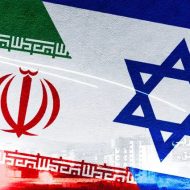
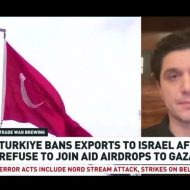
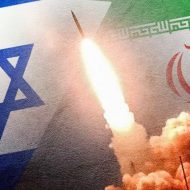
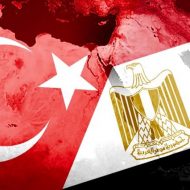
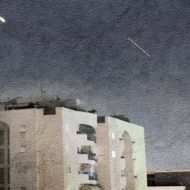
Leave a Reply